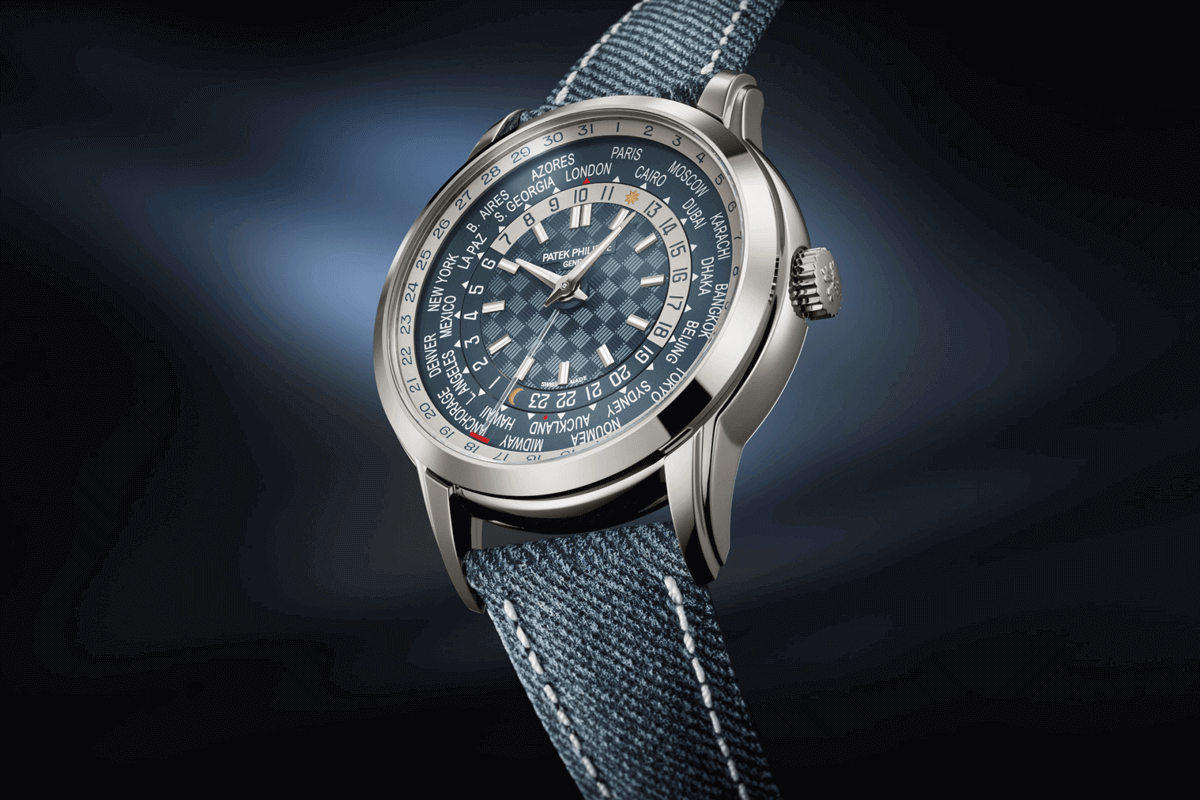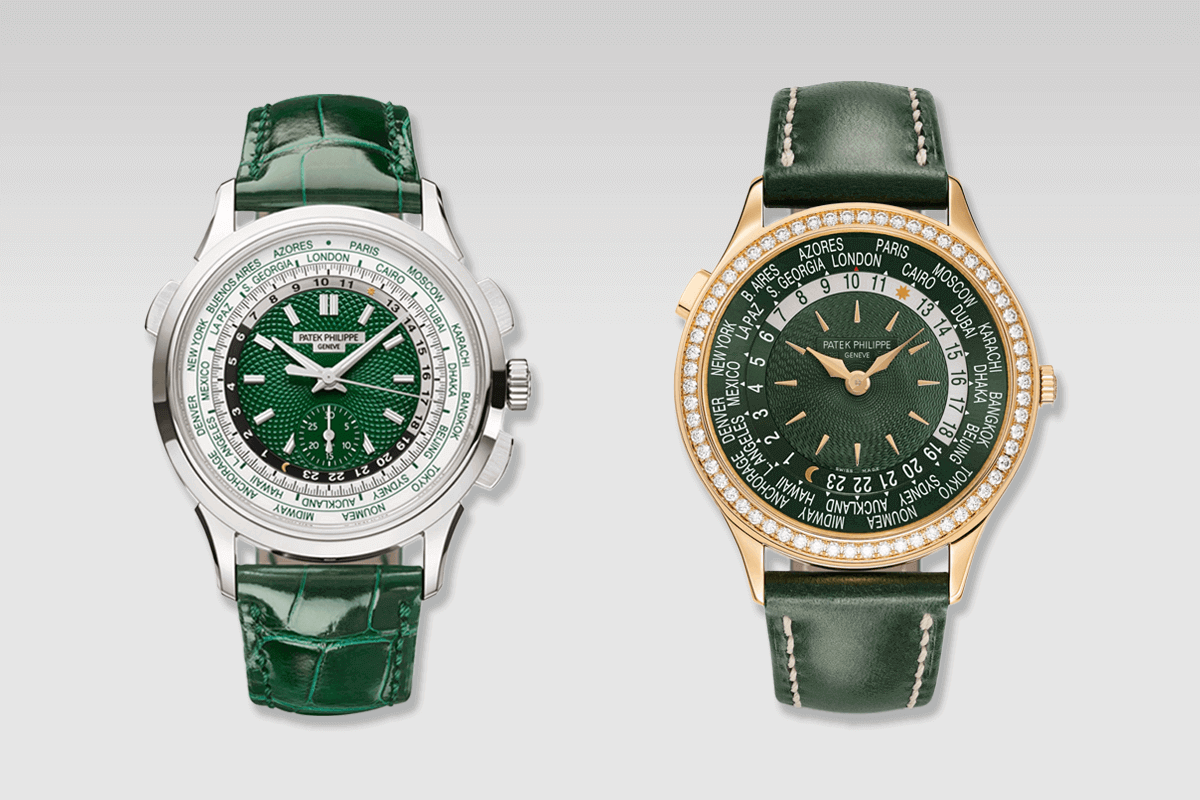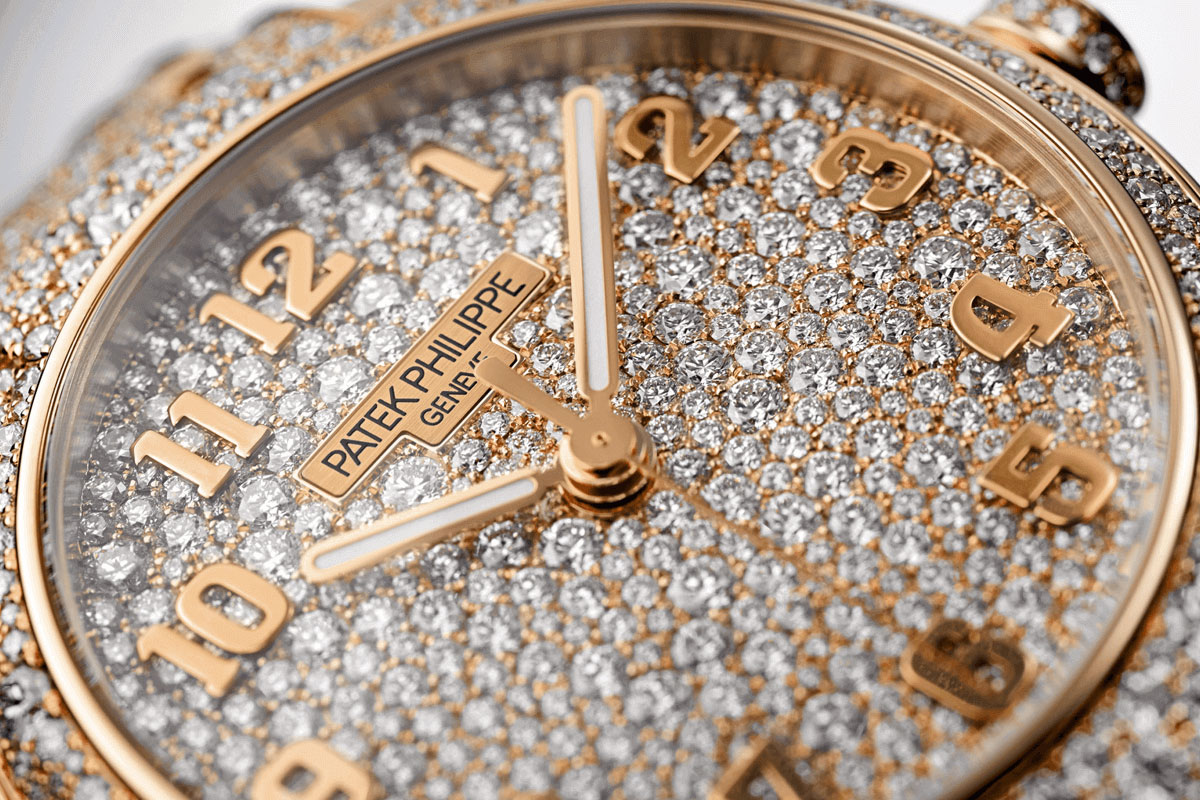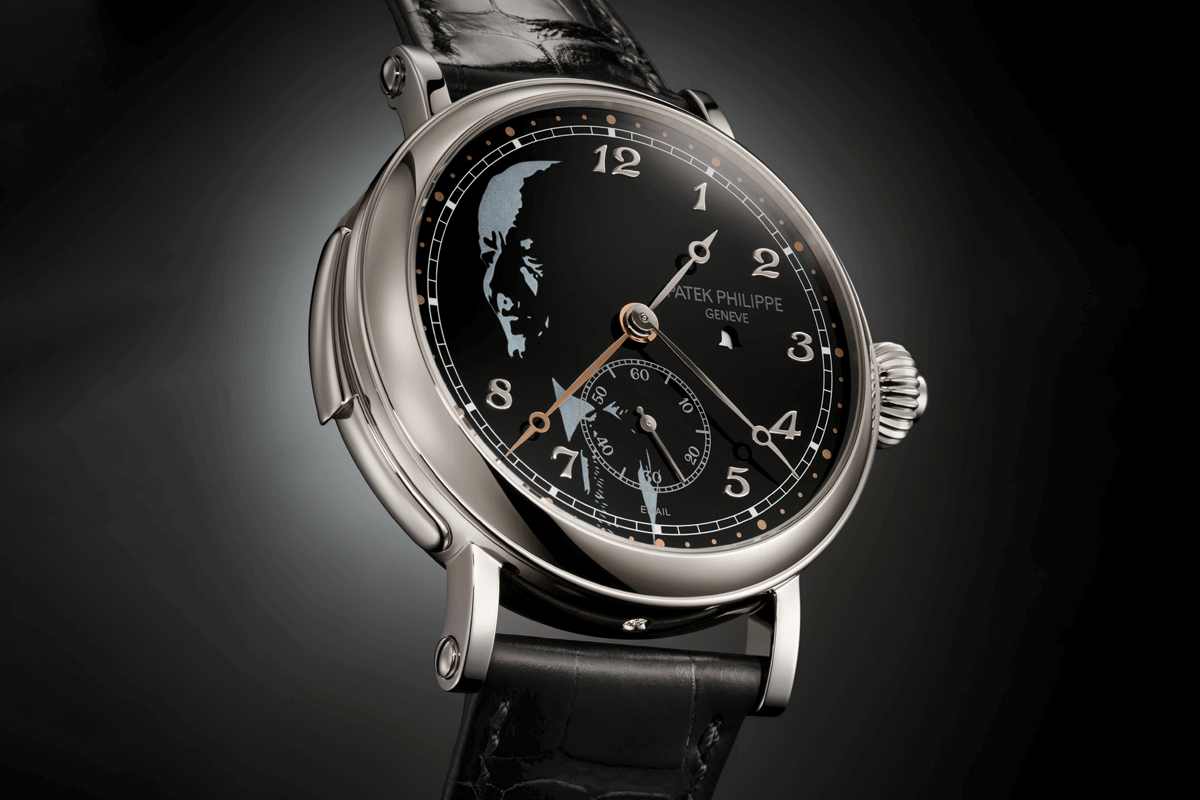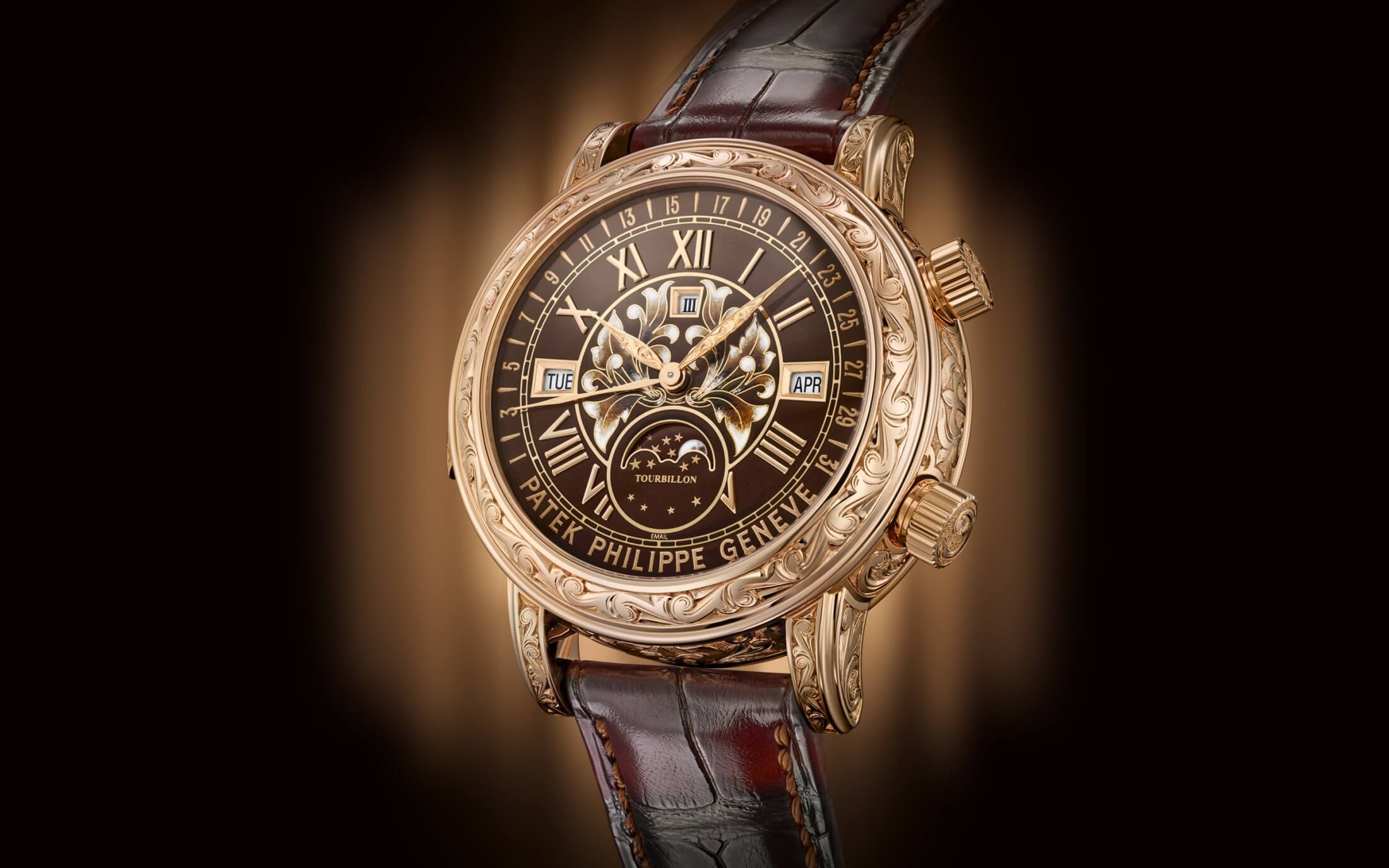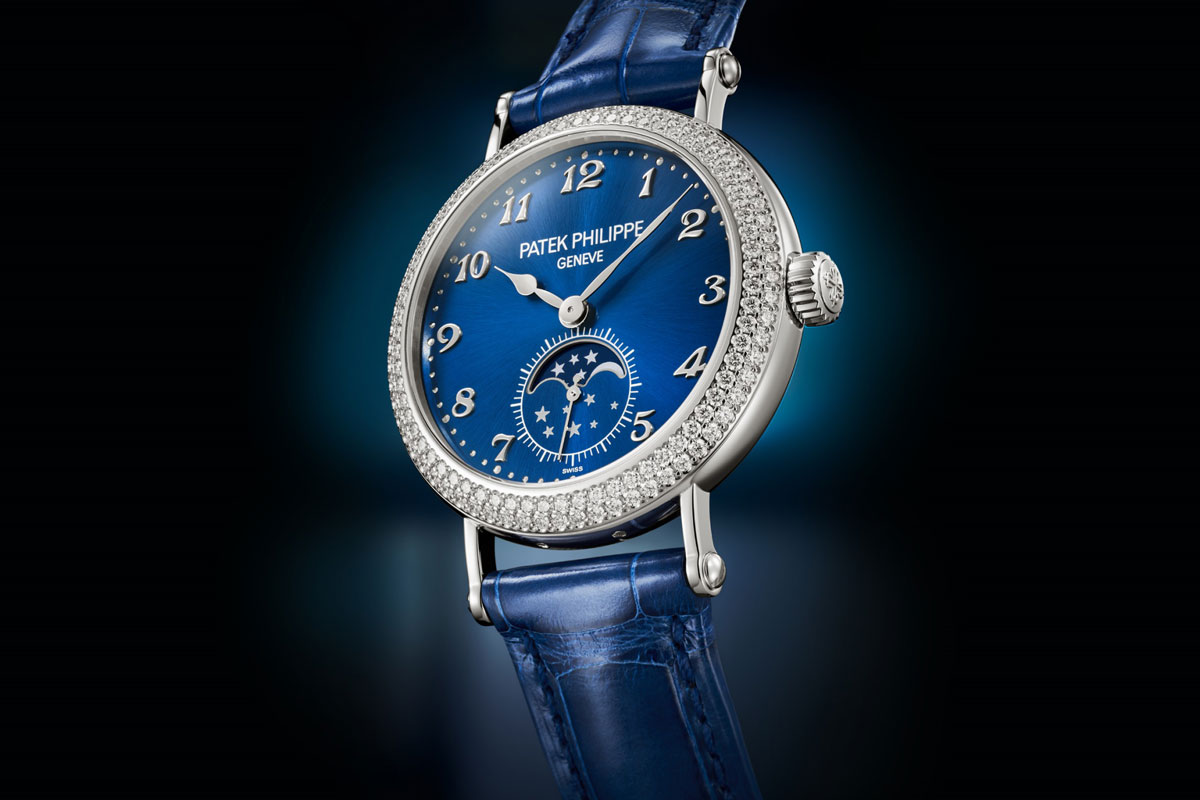
Every Patek Philippe chronograph tells a story of a particular era in the complication’s history.
The chronograph is one of the most useful and enjoyable complications in watchmaking. It’s also one of the most difficult to develop. Until the start of this century, only a few watch companies built their own chronographs. Others like Patek Philippe bought and modified Valjoux’s or Lemania’s chronographs. The Manufacture’s legendary Ref. 2499 Perpetual Calendar Chronograph was fitted with a modified Valjoux 13 130 Q. Its successor, the Ref. 3970, housed the CH 27-70 movement, which was a Lemania 2310 heavily modified by Patek Philippe.
When both Valjoux and Lemania were acquired by the Swatch Group, complications emerged. Many of the brands that bought movements from Valjoux or Lemania competed with the Swatch Group’s brands. The result was an explosive growth in watch manufacturing from 2000 onwards. Patek Philippe began its own chronograph development in 2003, taking just two years to build its first in-house chronograph.
While others start from simpler complications, Patek Philippe did the reverse. The CHR 27-525 PS was a split-seconds chronograph with a small seconds indication. At 5.25mm thick (hence its numbering) the manually-wound movement was the slimmest in the industry. It had clever innovations like a new tooth profile for its wheels and a setting wheel with friction springs between its arbor and the minute counter wheel. Today it can be found in just one rare model: the Ref. 5373P Split-Seconds Chronograph with Perpetual Calendar for Left-Handers.

The Patek Philippe Ref. 5373P-001 Split-Seconds Chronograph with Perpetual Calendar for Left-Handers is the only “Destro” model in its catalogue. Its design appears inspired by classic motor racing automobiles.
The Ref. 5373P is the only Left-handed Patek Philippe watch in serial production. It uses a single pusher sitting over the crown to operate the chronograph’s start, stop, and reset. The second pusher at 8 o’clock triggers the split/lap and rejoining of the two chronograph seconds hands. The stencil-style Arabic numerals applied on a vertically brushed dial with a gradient effect and dashboard-style counters express a motor racing attitude, a sport closely affiliated with precision timekeeping. The chronograph hands in red and the stitching on the fabric-patterned calfskin leather strap evoke the thrill of the race, surrounded by polished metal gleaming in the sunlight.

A closeup of the Ref 5373P-001’s dial shows the different textures of the dial, hands and indexes, as well as the simple use of colour to associate functions and indicators.
The calendar and timekeeping indications are in white and white gold respectively. The case has a classic Calatrava design with extruding lug bars, and its silhouette draws easy comparisons with the greatest sports automobiles. Styled for the gentleman motor racier, it’s an elegant sports watch with remarkable movement.

Be sure to take a deep breath before turning the Ref. 5373P-001 over to see the Caliber CHR 27-525 PS Q through the case back. It is magnificent.
The chronograph’s operation can be observed through the case back, managed by double column wheels with polished caps. The CHR 27-525 PS Q has an ultra-thin perpetual calendar module with every component finished by hand. Gold-hued gear wheels supported by rhodium-plated bridges and the mainplate shine through the protective sapphire crystal on the case back. Putting so much into such a small movement is a feat only a Manufacture like Patek Philippe can accomplish.
The Next Step

The Caliber CH 28-520 is Patek Philippe’s first self-winding flyback chronograph with a vertical clutch and column-wheel control.
The next year brought a different chronograph: the CH 28-520, Patek Philippe’s first in-house automatic flyback chronograph with vertical coupling and column-wheel control. This movement was intended to have a small footprint in size as well as display with a mono-counter design, with plenty of power to drive additional complications. Its first appearance was in the Ref. 5960P-001 Annual Calendar Chronograph – now succeeded by the Ref. 5905 and Ref. 5961, a gem-set version of the Ref. 5960P.

The Patek Philippe Ref. 5980/60G-001 Nautilus Chronograph’s dial is like the ocean just before sunrise or reflecting stormy weather seen through the porthole-style bezel.
Most recently, the CH 28-520 was housed in the new Ref. 5980/60G-001 Nautilus Chronograph. The chronograph mono-counters are at the 6 o’clock position with a small date at 3 o’clock. Supported by the horizontally embossed Nautilus dial in a cool blue-grey tone, the watch has a strong nautical character further enhanced by the porthole-style bezel and clamshell case. One can almost see the gently lapping waves in the pattern of the Nautilus’ dial. The calfskin leather strap has a fabric pattern like sailcloth, and the distressed blue like denim is well-worn by the sun.

The Patek Philippe Ref. 5961R-010 in an 18K rose gold case with baguette diamonds on the bezel. Of the three calendar windows, only the date is framed.
Patek Philippe has produced several variations of the CH 28-520 for different timepieces. It has been modified with the Manufacture’s second time zone, world time, and annual calendar complication modules. Each combination brings a different design; the majestic Ref. 5961R-010 Annual Calendar Chronograph commands attention with 36 baguette-cut diamonds set in a row on the rose gold bezel. The ebony black opaline dial shows the day, date and month in three apertures over the logo on matching black discs. While the date window is framed in gold, the day and month are not and that subtle invisibility makes the calendar look like a part of the dial.
The Classic Chronograph

The Patek Philippe Ladies First Chronograph Ref. 7071R, in an 18K rose gold Gondolo case with diamonds framing the watch dial. It was the first watch to possess the Patek Philippe Seal and the Manufacture’s manual-winding CH 29-535 PS movement.
The last addition and the final missing piece in chronograph construction emerged in 2009, unexpectedly in a ladies’ model. The Ladies First Chronograph was important for a number of reasons. It was the first watch to be stamped with the Patek Philippe Seal, and it recognised that interest in haute horlogerie was increasing among female enthusiasts. The Ref. 7071 came in the cushion Gondolo case that Patek Philippe reserves for ladies’ models, further assurance that this was a watch dedicated to them.

A closeup of the Caliber CH 29-535 PS that was first used in the Ref. 7071R. It’s shown here through the case back of the Ref. 5172G-010, a more recent release.
The CH 29-535 PS housed within the Ref. 7071 is a horizontally-coupled chronograph, where the chronograph wheels mesh directly with the gear train in order to measure passing time. This traditional design is challenging to perfect since the meshing process creates wear and friction among other issues. The CH 29-535 PS had six patents filed on different aspects of the movement. These include solutions to improve energy transmission, enhance precision, reduce friction and eliminate the jittering of the chronograph seconds hand. It also has an instantaneous 30-minute totaliser for the chronograph.

The Patek Philippe Ref. 5172G-001 has a design that’s aviation-inspired. The stepped lugs are like layered wings for a futuristic plane design, and the syringe-style hands and counterweight of the chronograph seconds hand look like a plane soaring over a deep blue sea.
A second chronograph reference was presented by the Manufacture in 2010, fitting the CH 29-535 PS movement into an 18K yellow gold Calatrava case with thin baton markers and a pulsometer scale on the dial. Its design is similar to the early Physician’s Pulse-Watches created by Samuel Watson. Today, it is succeeded by the Ref. 5172G which takes inspiration from civilian and military aviation. The case and lugs of the Ref. 5172G have an Art Deco style stepped design that is used in different icons, but they also look like layered metal wings lifting the watch into the sky. The dial features a bicompax chronograph layout with pilot-style Arabic numeral indexes and syringe-style hands.

The Patek Philippe Ref. 5172G-010 adds a whiff of vintage style to the same watch with a rose gold dial and oxidised gold hands and indexes, as if it has aged through time.
The watch has two dial variations, the first in blue with white gold hands and applied indexes that are coated with luminous material (Ref. 5172G-001). The Ref. 5172G-010 has a rose-gold opaline dial, black oxidised gold hour markers and hands, and a brown alligator leather strap. Both are excellent wrist gear for any genteel aviator, though they differ in style. A trendy and spirited character might welcome the blue dial, while a more reserved and distinguished individual might embrace the rose gold dial.

The Patek Philippe Ref. 5370P-011 takes its design cues from the Officer Chronographs that were created in the 1920s, with some refinements.
A split-seconds version of the CH 29-535 soon followed, along with new variations featuring a perpetual calendar module. The Ref. 5370P-001 which houses CHR 29-535 PS, the rattrapante version of the CH 29-535, echoes Patek Philippe’s Officer Chronograph designs from the 1920s. The platinum watch has officer-style lugs with a Grand Feu enamel dial in royal blue, white gold Breguet numerals and feuille hands. Flip over to the back of the watch to be fascinated by the spectacularly hand-finished movement with buttery smooth pusher operation.

The Patek Philippe Caliber CH 29-535 PS 1/10 is the only high-frequency movement produced by the Manufacture today. It’s seen here through the case back of the Ref. 5470P-001.
But what is equally captivating to the CHR 29-535 PS is the only high-frequency Patek Philippe movement in serial production today: the CH 29-535 PS 1/10. In the last 55 years since the first high-frequency chronograph movement entered serial production, there are just a handful of manufactures producing such calibers. The Ref. 5470P-001 demonstrated Patek Philippe’s ability to develop high-performance high-frequency chronographs with its patented Oscillomax escapement.

The Patek Philippe Ref. 5470P-001 gives the classic chronograph design a casual yet upbeat and energetic feel, with a foudroyante chronograph seconds hand (in red) in addition to the standard chronograph seconds for precise measurement.
This remarkable monopusher chronograph has a similar design to the Ref. 5370P with minor differences. It has a blue varnished dial rather than an enamel, and the second central chronograph seconds hand in red measures 1/10th of a second instead of a lap. It also has a calfskin strap in blue with a fabric-weave pattern and red stitching, like a more casually dressed Officer Chronograph.
Above All Else

The Patek Philippe Ref. 5208R-001 has a minute repeater, chronograph, and perpetual calendar – the three categories of complications for a grande complication in the past.
The watches mentioned above have integrated chronograph movements which offer some advantages to the modular chronograph. For one, they have a slimmer design. They are also less likely to significantly affect the amplitude of the balance when activated, preserving timekeeping precision. However, there are times when a modular chronograph is needed. For Patek Philippe, that is in service of the Ref. 5208 Grand Complication which features a minute repeater, perpetual calendar, and chronograph.

The Patek Philippe Ref. 5208R-001 has an intuitive and highly legible display. The use of colours and materials to associate indications creates a simple visual experience for all.
The Ref. 5208’s design reveals how Patek Philippe makes the most complicated watches easy to read and even easier to operate. On the dial, the chronograph’s operation can be read off the white gold hands on displays and subdials with white indication rings. Timekeeping is presented using rose gold hands, with the small running seconds placed with the moon phase indicator. The calendar in black with gold frames matches the design of the moon phase display, and finally two additional apertures detail the day/night as well as the leap year.

The Patek Philippe Ref. 5208R-001 is a hefty watch and thus the lugs are positioned closer to the back of the watch for comfortable wearing. They are skeletonised to minimise any shifts in position by keeping the weight in the centre.
The operations of each complication are also separated. A mono pusher above the crown controls the chronograph while a slider to the left of the case activates the minute repeater. The crown manages time adjustment and mainspring winding, while correctors placed around the case middle enable manual calendar adjustments. The Caliber R CH 27 PS QI is thick, making the case heftier; the lugs are positioned closer to the case back for a good wrist fit. The lugs are also skeletonised, cutting some of the weight of the gold case to minimise strain.

The Patek Philippe Caliber R CH 27 PS QI is the only movement by the manufacture that has a modular chronograph added to the Caliber R 27 base.
In the last 20 years, Patek Philippe has developed its own in-house chronographs and elevated them with variations and additional complications. Each has an aesthetic that captures the complication’s use and evolution throughout history, as well as its own. To discover these watches personally, reach out to one of our sales associates or step into our boutiques today.
Discover Patek Philippe collections at our boutiques, or online. Contact a sales representative today to learn more.






